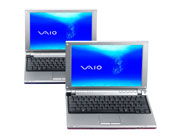Laptop battery standards to be revised
Standards body to change laptop battery performance, reliability and robustness.

Sign up today and you will receive a free copy of our Future Focus 2025 report - the leading guidance on AI, cybersecurity and other IT challenges as per 700+ senior executives
You are now subscribed
Your newsletter sign-up was successful
The IEEE has announced that it is to revise its laptop battery standard, IEEE 1625, which was approved in 2004. The update aims to improve the overall performance of laptop battery systems and to address calls to make these systems more reliable and robust.
The standards body said in September that it would revisit the 'Standard for Rechargeable Batteries for Portable Computing', part of the IEEE Livium family of battery standards that provide planning and implementing controls for battery design, manufacture and quality control.
It adopts a systems approach by addressing the complete battery environment from cells to the computers they power. It covers aspects such as battery pack electrical and mechanical construction, cell chemistries, packaging, pack and cell controls and overall system considerations.
'In revising IEEE 1625 to further safeguard the reliability of these batteries, we will leverage the streamlined corporate standards process and incorporate lessons learned in developing the IEEE 1725 standard for cellular telephone batteries,' said Edward Rashba, manager, New Technical Programs at the IEEE-SA. 'We have an opportunity to further strengthen the Livium portfolio, which already incorporates hundreds of man-hours of technical work and represents consensus views on best practices from leading industry experts.'
He added that leading laptop OEMs and battery manufacturers such as Apple, Dell, Gateway, HP, IBM, Intel, Lenovo, Panasonic, Sanyo, and Sony have indicated that they would like to participate in the revision process
Completed standards in the IEEE Livium family include the original IEEE 1625 standard and the IEEE 1725 the mobile cell phone battery standard. The IEEE has also initiated the IEEE P1825 standard for mobile batteries in digital cameras and camcorders.
Apple, Dell, HP and Lenovo have previously said that they planned to meet to discuss battery standards, following the recent recalls of almost 10 million Sony-made laptop batteries.
Sign up today and you will receive a free copy of our Future Focus 2025 report - the leading guidance on AI, cybersecurity and other IT challenges as per 700+ senior executives
-
 CISOs are keen on agentic AI, but they’re not going all-in yet
CISOs are keen on agentic AI, but they’re not going all-in yetNews Many security leaders face acute talent shortages and are looking to upskill workers
-
 Why Amazon’s ‘go build it’ AI strategy aligns with OpenAI’s big enterprise push
Why Amazon’s ‘go build it’ AI strategy aligns with OpenAI’s big enterprise pushNews OpenAI and Amazon are both vying to offer customers DIY-style AI development services